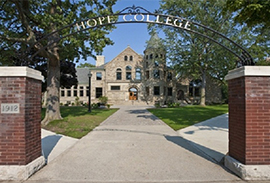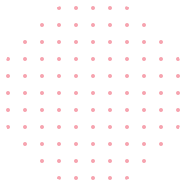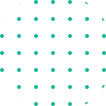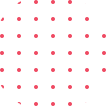
Master Software Skills with Best Software Coaching Institute
Looking for expert software training? Elysium Academy is a leading best software coaching institute offering hands-on courses in programming, development, and IT skills to help you achieve your career goals.

4.8/5 Rating

1 to 1 Guidance

Support Available 24/7

100+ Hiring Partners
Benefits of Software Coaching
- Expert trainers with industry experience.
- Flexible schedules for students and professionals.
- Comprehensive curriculum for all skill levels.
- Gain practical experience through projects.
- Access to career guidance and placement support.
Transforming Potential into Expertise
Practical Hands-On Sessions
Immerse yourself in hands-on sessions for practical training.
Learning and Opportunities
Explore diverse avenues for enriching your educational journey.
Engaging Workshops
Dive into captivating workshops and seminars to enhance learning.
- Overview
- Course Details
- Syllabus
- FAQ
Master Essential C & C++ Skills: Become a Certified Developer and Kickstart Your Career!
Elysium Academy has established itself as a leader in the C & C++ programming arena, offering a comprehensive program that empowers participants to develop, debug, and optimize code with unparalleled proficiency.
2.2
Version
20 Hours
Duration
5 Hours
Theory
15 Hours
Practical
Version
2.2
Duration
65 Hours
Theory
12 Hours
Practical
65 Hours
- Industry Based Projects
- Personalized coordinator.
- Trainer feedback.
- Trainer availability post sessions.
- Get your staff certified.
- Certificate from governing bodies.
- Recognized worldwide
- Hands on assignment
- Master C & C++ Fundamentals: Understand variables, data types, loops, and functions.
- Advanced Programming Concepts: Delve into object-oriented programming (OOP) and error handling.
- Efficient Memory Management: Learn to handle memory allocation and pointers effectively.
- Data Structures and Algorithms: Implement essential data structures and algorithms.
- Develop and Debug Code: Utilize tools and techniques to develop and debug code efficiently.
- Optimize Performance: Learn best practices for writing high-performance code.
Top companies offer this course to their employees
Course was selected for our collection of top-rated courses trusted by businesses worldwide.
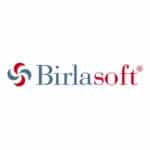




Salary
PER ANNUM
₹ 2 L
Job Growth
Current Month
13%
Offer Jobs
2026
1.5 L
The Core C & C++ Programming course offers learners the opportunity to master two of the most fundamental programming languages used in software development today. Get started with the essential field of systems programming and learn C and C++ with the guidance of experienced instructors. Learners will emerge prepared to tackle real-world software development challenges. Here are some of the skills you will need to learn if you want to become a proficient C and C++ programmer.
The Core C & C++ Programming course teaches you to master the concepts of C and C++ programming. Through this training, you will learn about Data Structures, Algorithms, Memory Management, Object-Oriented Programming (OOP), and Optimization Techniques.
- Gain the skills to develop operating systems, embedded systems, and real-time applications.
- Build efficient and robust software applications using C and C++.
- Learn to write high-performance code critical for applications requiring speed and efficiency.
- Develop a deep understanding of algorithm implementation and data structure design.
- Establish a strong foundation for exploring advanced topics such as Artificial Intelligence, Game Development, and Systems Architecture.

Our Training Program Benefits
- Live, interactive training by experts.
- Curriculum that focuses on the learner.
- Challenge-based, hands-on project.
- Opportunities for team building.
- Cost- saving training.
- Convenient for your employees.
- Completely tailor-made curriculum.
Chapter-1 Getting Started C
- What is C?
- Features of C
- Applications of C
- Structure of C
- Installation Setup
- Print Statement
- Data Types
- Variables
- Operators
- Identifiers
- Comments
- Escape Sequence
- Constants
- Tokens
- Keywords
- Hands-On
- Types of Operators
- Purpose of Operators
- Arithmetic Operators
- List the Arithmetic Operators
- Hands-On Arithmetic Operators
- Increment and Decrement Operators
- Hands-On Increment and Decrement Operators
- List the Assignment Operators
- Purpose of Using Assignment Operators
- Hands-On Assignment Operators
- List the Relational Operators
- Purpose of Using Relational Operators
- Hands-On Relational Operators
- List the Logical Operators
- Purpose of Using Logical Operators
- Hands-On Logical Operators
- List the Bitwise Operators
- Purpose of Using Bitwise Operators
- Hands-On Bitwise Operators
- List the Other Common Operators
- Quiz on Operators
Chapter-2 Conditions and Loop Statement
- If Statement
- Else If Statement
- If Else Statement
- Switch Case Statement
- To Check if a Number is Even or Odd
- To Check if a Given Number is a Multiple of 3
- To Check if the Entered Character is a Vowel
- About Loops
- Why We Use Loops?
- Unconditional Branching Using goto Statement
- For Loop
- To Print Star Patterns
- While Loop
- do-while Loop
- break and continue
- Nested Loop
Chapter-3 Functions, Array
- What are Functions?
- Local and Global Variables
- Parameters and Arguments
- Declaration and Definition
- Storage Class
- Pass by Value and Reference
- Recursive Functions
- Functions like Macros
- Math Functions
- Hands-on Functions
- What is Recursion Function?
- Purpose of Recursion
- Hands-on Recursion
- What is an Array?
- Declaration and Initialization
- Modify Array
- Find Length of the Array
- Find Minimum and Maximum Number in Array
- Hands-on Declaration and Initialization
- Create 2D Array
- Find Sum of Numbers in 2D Array
- What is a String?
- String Concatenation
- Calculate String Length
- Compare Two Strings
- Reverse Two Strings
- Swap Two Strings
- Quiz
Chapter-4 Pointers, Dynamic Memory Allocation
- What is pointers?
- Benefits of pointer
- Types of pointer
- Creating pointers
- Pointers and arrays
- How pointers are related to array?
- Pointer to a function
- Pointer to structure
- Pointer operators
- Pointer casting
- NULL Pointer
- The "sizeof" Operator
- Hands on 'sizeof'
- To swap two numbers using pointer
- What is Dynamic Memory Allocation?
- Purpose of Dynamic Memory Allocation
- Difference between static memory allocation and dynamic memory allocation
- malloc()
- Hands on malloc()
- calloc()
- Hands on calloc()
- realloc()
- Hands on realloc()
- free()
- Hands on free()
- What is storage classes?
- Types of storage classes
- Purpose of storage classes
- What is preprocessors?
- Macro Substitution
- File Inclusion
Chapter-5 Structures, File Handling
- Difference between structures and union
- What is structure?
- Structure Declaration
- Access structure members
- Strings in structure
- Hands on structures
- What is Union?
- Union Declaration
- Access union members
- Hands on union
- enum
- Hands on enum
- Typedef
- Hands on Typedef
- What is file handling?
- Why it is important?
- Types of files
- Creating a file
- Opening a file
- Reading a file
- Writing a file
- Deleting a file
- Functions of file handling
- Mode of operations
Chapter-6 Getting Started with C++
- What is C++?
- Why we used C++?
- How C++ differs from C
- Advantages and drawbacks
- Applications of C++
- Structure of C++
- Installation setup
- Primary data types
- Derived data types
- User defined data types
- Hands on data types
- Constants
- Variable declaration
- Header file in C++
- What are header files?
- Name space
- Escape sequence
- Main Function
- Block and semicolon
- Key words
- Function overloading
- Optional Parameters
- Reference Variables
- Basics of Console Input and Output
- Constant pointers
- Dynamic Memory allocation
- User input
- Problem understanding: Sum of two numbers
- Problem understanding: Average of three numbers
Chapter-7 Functions
- Swap two numbers
- To print first and last number in a three-digit number
- Find area and perimeter of a square
- Find area and perimeter of a rectangle
- Find quotient and remainder
- Reverse a number
- Multiply two numbers
- Create pyramid and patterns
- Call by reference, Return by reference
- Function overloading and default arguments
- Inline function
- Static class members
- Friend functions
- Virtual Function
- Hands on functions in C++
- Overloading unary operations
- Overloading binary operators
- Data conversion
- Pitfalls of operators overloading and conversion keywords
- Explicit and Mutable
Chapter-8 OOPS
- What is OOPS?
- Purpose of OOPS
- Advantages of OOPS
- Application of OOPS
- Different category of OOPS
- What is object?
- What is class?
- Create a class
- Create an object
- Class methods
- Types of class methods
- Data members
- this pointer
- static class member
- friend class and member
- Hands on object and class
- What is constructors?
- Types of Constructors
- Default, Parameterized & Copy constructors
- Multiple constructors
- Constructors with default arguments & Dynamic constructor
- What is destructors?
- Hands on constructors and destructors
- What is inheritance?
- Purpose of inheritance
- Derived class
- Members of derived class
- Access Specifiers
- Types of inheritance
- Application of inheritance
- Single inheritance
- Hands on single inheritance
- Multiple inheritance
- Hands on Multiple inheritance
- Hierarchical inheritance
- Hands on Hierarchical inheritance
- Multilevel inheritance
- Hands on Multilevel inheritance
- Hybrid inheritance
- Hands on Hybrid inheritance
Chapter-9 Encapsulation, File Handling
- What is encapsulation
- Purpose of encapsulation
- Features of encapsulation
- Access private members
- Hands on encapsulation
- Polymorphism
- Why polymorphism?
- Run time polymorphism
- Compile time polymorphism
- Virtual Function
- Abstract Class
- Hands on polymorphism
- Quiz on OOPS
- What is stream?
- Stream input
- Stream output
- Different Operations in I/O stream
- Basic syntax for different operations
- Hands on Operations in I/O stream
- What is file handling?
- File stream libraries
- Text file handling
- Binary file handling
- How to open files?
- Hands on open files
- How to close files?
- Hands on close files
- How to write to files?
- Hands on writing files
- How to read from files?
- Hands on reading files
- getline()
- What is Exception Handling?
- Purpose of exception handling
- Advantages and drawbacks
- try and catch block
- throw statement
- Hands on
- Quiz
- About templates
- Function templates
- Class templates
- Create a class templates
- Hands on class templates
- Class template with multiple parameters
- Create a function templates
- Hands on function templates
What is the Core C & C++ Programming Training Course offered by Elysium Academy?
The Core C & C++ Programming Training Course by Elysium Academy is designed to provide a comprehensive understanding of the fundamental concepts and advanced features of the C and C++ programming languages. This course covers everything from basic syntax and data structures to object-oriented programming and advanced algorithms, equipping students with the skills necessary to develop robust and efficient software applications. The training includes hands-on projects, real-time problem-solving exercises, and expert guidance to ensure practical knowledge and industry readiness.
What makes Elysium Academy the best Core C & C++ Programming training center near me?
Elysium Academy stands out as the best Core C & C++ Programming training center due to its comprehensive curriculum, experienced instructors, hands-on learning approach, and state-of-the-art facilities. The academy offers personalized attention, real-world projects, and flexible scheduling to accommodate different learning paces and needs. Additionally, their strong industry connections and placement support help students transition smoothly into professional roles.
Who is this course for?
This course is designed for beginners and intermediate learners who want to master the fundamentals and advanced concepts of C and C++ programming.
What will I learn?
You'll learn basic to advanced concepts, including syntax, data types, control structures, functions, pointers, memory management, and object-oriented programming in C++.
Do I need prior programming experience?
No prior programming experience is required; the course starts with the basics and gradually moves to more advanced topics.
What tools do I need?
You'll need a C/C++ compiler and an integrated development environment (IDE) like Code::Blocks, Dev-C++, or Visual Studio, which will be covered in the course setup.
How long is the course?
The course duration is approximately 8-10 weeks, with an expected commitment of 5-7 hours per week to complete all lectures, assignments, and projects.
Are there assignments and projects?
Yes, the course includes hands-on assignments and projects designed to reinforce your learning and give you practical programming experience.
What is the format of the course?
The course includes video lectures, reading materials, quizzes, and practical exercises to provide a comprehensive learning experience.
Is there a certificate upon completion?
Yes, you will receive a certificate of completion after successfully finishing the course, which you can add to your resume or LinkedIn profile.
Can I access the course content after completion?
Yes, you will have lifetime access to all course materials, allowing you to revisit and review the content anytime.
What support is available during the course at Elysium Academy?
At Elysium Academy you can access support through discussion forums, email, and live Q&A sessions with instructors to help you with any questions or difficulties you encounter.

- Core C & C++ Programming Course Crash
- Duration: 45 Hours
- Level: Beginner
- Days: 45 Days
- Chapters: 23
- Language: English
- Certifications: Yes
- Code: EAPL/CRASH/CRTC01
- Course Code: EACCC
- Sub Category: Software Development Training Course
Thank you!
We will contact you soon.
Thank you!
We will contact you soon.
750+
PLACEMENT PARTNERS
150+
COLLEGE TIE-UPS
1.57K
ENTERPRISE CUSTOMERS
10+
HELPDESK OPTIONS
Pick A Course To Get Started
Core & Advanced Java Programmer Training Course
Master both Core and Advanced Java programming skills with our comprehensive training course, designed to take your expertise.
Core Nodejs Training Course
Master the fundamentals of Node.js with our comprehensive training, covering asynchronous programming, event-driven architecture, and advanced JavaScript concepts.
Core C & C++ Programming Training Course
Master the fundamentals of programming with our Core C & C++ Training Course, designed for beginners.
Python for Data Scientist – Machine Learning
Python is indispensable for data scientists, powering machine learning with its robust libraries and intuitive syntax. It's the cornerstone of...





Pick A Software Coaching

Frequently Asked Questions
What software do you cover?
We cover a variety of software including Python, Java, and cloud technologies.
Are beginner-friendly courses available?
Yes, we have beginner, intermediate, and advanced tracks.
How are the sessions conducted?
Both online and offline sessions are available.
Is job placement support provided?
Yes, we offer career guidance and placement assistance.
Can I learn at my own pace?
Absolutely, our flexible schedules allow self-paced learning.









